第42章
There is no need of much word on the spell of the Bible over Robert Browning and Mrs.Browning.It is not often that two singing- birds mate; but these two sang in a key pitched for them by the Scripture as much as by any one influence.Many of their greatest poems have definite Biblical themes.In them and in others Biblical allusions are utterly bewildering to men who do not know the Bible well.For five years (1841-1846) Browning's poems appeared under the title Bells and Pomegranates.Scores of people wondered then, and wonder still, what "Pippa Passes" and "A Blot in the Scutcheon " and the others have to do with such a title.They have never thought, as Browning did, of the border of the beautiful robe of the high priest described in the Book of Exodus.The finest poem of its length in the English language is Browning's "Saul"; but it is only the story of David driving the evil spirit from Saul, sweeping on to the very coming of Christ."The Death in the Desert" is the death of John, the beloved disciple."Karshish, the Arab Physician" tells in his own way of the raising of Lazarus.The text of "Caliban upon Setebos" is, "Thouthoughtest that I was altogether such an one as thyself." The text of "Cleon" is, "As certain of your own poets have said." In "Fifine at the Fair" the Cure expounds the experience of Jacob and his stone-pillow with better insight than some better- known expositors show.In "Pippa Passes," when Bluphocks, the English vagabond, is introduced, Browning seems to justify his appearance by the single foot-note: "He maketh His sun to rise on the evil and on the good, and sendeth rain on the just and on the unjust"; and Mr.Bluphocks shows himself amusingly familiar with Bible facts and phrases.Mr.Sludge, "the Medium," thinks the Bible says the stars are "set for signs when we should shear sheep, sow corn, prune trees," and describes the skeptic in the magic circle of spiritual "investigators" as the "guest without the wedding-garb, the doubting Thomas." Some one has taken the trouble to count five hundred Biblical phrases or allusions in "The Ring and the Book." Mrs.Browning's "'Drama of Exile" is the woman's side of the fall of Adam and Eve.Ruskin thought her "Aurora Leigh" the greatest poem the century had produced at that time.It abounds in Scriptural allusions.Browning came by all this naturally.Raised in the Church by a father who "delighted to surround him with books, notably old and rare Bibles," and a mother Carlyle called "a true type of a Scottish gentlewoman," with all the skill in the Bible that that implies, he never lost his sense of the majesty of the movement of Scripture ideas and phrases.
We need spend little time in discussing the influence of the English Bible on Thomas Carlyle.He does not often use the Scripture for his main theme; but he is constantly making Biblical allusions.On a railway journey when I was rereading Carlyle's Historical Sketches, I found a direct Biblical reference for every five pages, and almost numberless allusions beside.
The "Everlasting Yea," of which he says much, he gets, as you at once recognize, from the Scripture.His "Heroes and Hero Worship" is based on an idea of heroism which he learned from the Bible.He is an Old Testament prophet of present times; and, while he degenerated into a scold before he was through with it, he yet spoke with the thunderous voice of a true prophet, and much of the time in the language of the prophets.Someone said once that the only real reverence Carlyle ever had was for the person of Christ.Certainly there is no note of sneer, but of the profoundest regard for the teaching, the ideas and the history of the Scripture.
The name of Charles Dickens suggests a different atmosphere.He is a New Testament prophet.Where Carlyle has caught the spirit of rugged power in the Old Testament, Dickens has caught the sense of kindly love in the New Testament.Dickens's love for the child, the fact that he could draw children as he could draw no one else and make them lovable, suggests the value to him of those frequent references which he makes to Christ setting a child in the midst of the disciples.It is notable, too, how often Dickens uses the great Scripture phrases for his most dramatic climaxes.There are not in literature many finer uses of Scripture than the scene in Bleak House, where the poor waif Joe is dying, and while his friend teaches him the Lord's Prayer he sees the light coming.A Christmas season without Dickens's Christmas Carol would be incomplete; but there again is the Scripture idea pressed forward.
George Eliot surely, if any writer, was under the spell of the Scripture.One of her critics calls her the historian of conscience.All of her heroes and heroines know the lash of the law.She knows very little about the New Testament, one would judge; but the one thing about which she has no doubt is certainly the reign of moral law.If a man will not yield to its power, it will break him.There is no such thing as breaking the moral law; there is nothing but being broken by it.Her characters are always quoting the Bible.They preach a great deal.She tells that she herself wrote Dinah Morris's sermon on the green with tears in her eyes.She meant it all.While her own religious faith was clouded, her finest characters are never clouded in their religious faith, and she grounds their faith quite invariably on their early training in the Scripture.It is an interesting fact that George Eliot has no principal story which has not in it a church, and a priest or a preacher, with all that they involve.